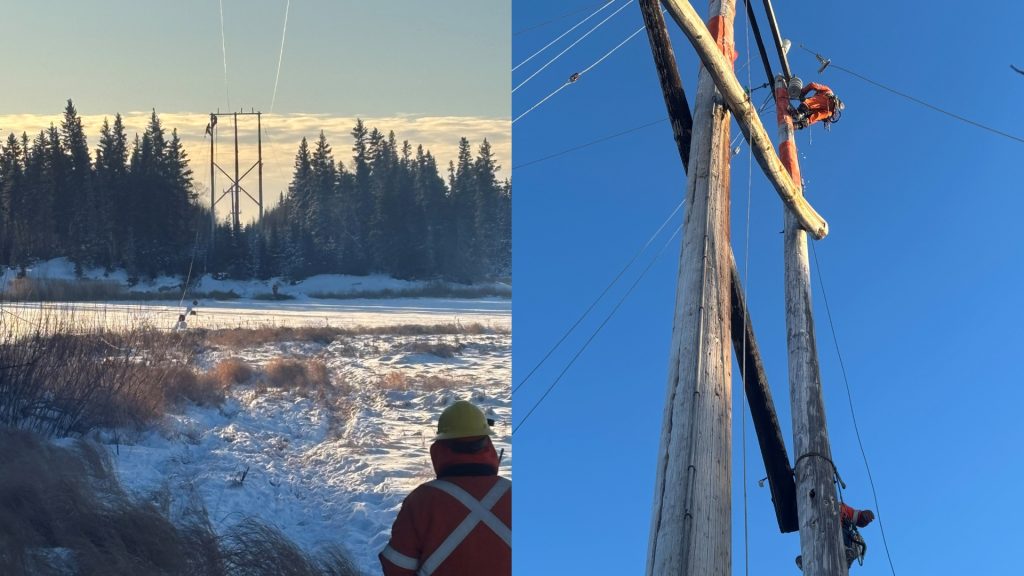Manitoba budget, set for Tuesday, to include several tax breaks and hits

Posted March 29, 2024 3:16 pm.
Manitoba’s NDP government is set to deliver tax breaks, and some tax increases, as part of its first budget since winning last October’s election.
The government has already sent strong hints that the fiscal plan, which will be tabled Tuesday, may extend the province’s fuel-tax holiday for a few months. The government temporarily suspended the 14-cents-a-litre tax on Jan. 1 for six months, and has repeatedly said the door is open to a brief extension.
The budget is also expected to fulfil some of the promises the NDP made during the election campaign: a doubling of the tax credit for fertility treatments, free prescription birth control, rebates of up to $4,000 for people buying electric vehicles and a $300 rebate for people buying security cameras for their home or business.
The NDP is also expected to follow through on a campaign promise to increase a tax credit to help renters as well.
“This budget is going to show progress on the commitments we made in the election,” Finance Minister Adrien Sala said at a pre-budget event Thursday.
But people with higher incomes and higher-value homes are expected to take a hit.
The government looked at cuts to income and property taxes made by the previous Progressive Conservative government. The Tories boosted the basic personal exemption — the threshold at which people start paying income tax — and issued 50 per cent refunds on the education tax on residential and farm properties.
Critics said the tax cuts primarily favoured the rich, while the Tories said the changes helped everyone deal with the rising cost of living.
A government source told The Canadian Press the NDP has been eyeing changes to make the two taxes more progressive — people with high incomes and higher-priced homes would pay more, while those with less would get a break.
The property tax changes would move from a combination of the new 50 per cent rebate and a long-existing $350 tax credit to a single, flat credit. Some homeowners would pay less, some would pay more. But overall the province would take in more money, the source said.
The source spoke on condition of anonymity as they were not authorized to speak on the record.
The CBC, quoting an unnamed government spokesperson, reported Friday that the flat credit will be $1,500, effective in 2025.
As for income taxes, Sala has already ruled out establishing an additional tax bracket for high earners — Manitoba’s top bracket currently starts at $100,000.
But there are other options. The federal government, for example, allows a smaller basic personal exemption for high-income earners. Manitoba has not followed suit to date.
The budget comes at a time of continued red ink for the province. Manitoba has registered deficits in every year but two since 2009, and the deficit for the last fiscal year was recently forecast at close to $2 billion.
“This is a very, very tough budgetary situation,” said Paul Thomas, professor emeritus of political studies at the University of Manitoba.
Expectations are also high, as the NDP promised to hire more health-care workers, boost the hours of direct care for residents in personal care homes and increase funding to municipalities, schools and other bodies.
Thomas said he views this budget “as the first real test” for the government to both deliver on its expansive agenda of progressive reforms and show fiscal prudence with a plan to achieve a balanced budget during its first term in office.
“There are only a limited number of budgetary options, none of them easy or politically painless,” he said.
The NDP’s effort to reduce the deficit will be helped somewhat by the recent settlement of a class-action lawsuit on behalf of kids in the child welfare system who had federal benefits clawed back. The $530-million settlement, which still requires court approval, has already been accounted for and will not come out of this year’s budget, the finance minister’s office said.
The NDP budget could also be helped if water levels improve from last year’s drought conditions. A very dry summer reduced the amount of water available to generate hydroelectricity, turning an expected profit at Crown-owned Manitoba Hydro into a loss recently estimated at $190 million.








